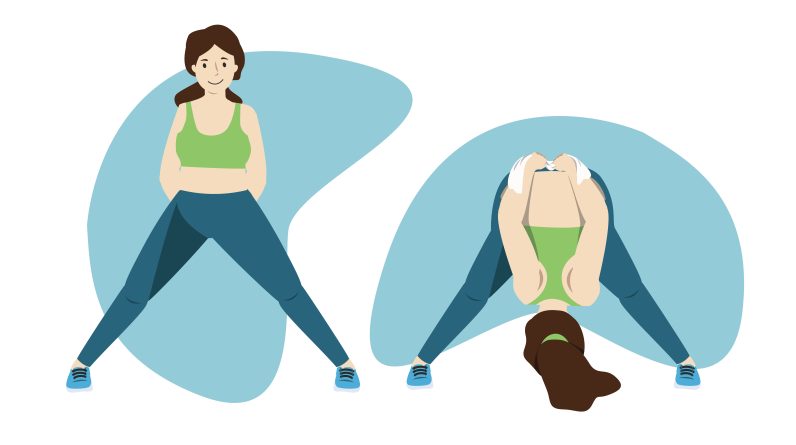
Maintaining good mental health is crucial in today’s fast-paced and demanding world. While there are various strategies to promote mental well-being, one often overlooked method is regular exercise. This article explores the connection between workouts and mental health, highlighting the profound impact physical activity can have on our psychological well-being.
The Mind-Body Connection :
The mind and body are intricately connected, and physical exercise has been shown to have a profound impact on mental health. Engaging in regular workouts releases endorphins, often referred to as “feel-good” hormones, which promote a sense of well-being and reduce symptoms of stress, anxiety, and depression. Exercise also improves blood circulation, delivering oxygen and nutrients to the brain, thereby enhancing cognitive function and overall mental clarity.
Stress and Anxiety Relief :
One of the most common mental health issues people face is stress and anxiety. Regular exercise acts as a powerful stress-reliever by reducing the levels of stress hormones, such as cortisol, in the body. Workouts also provide a healthy outlet for pent-up emotions, allowing individuals to release tension and clear their minds. Whether it’s a brisk walk, a yoga session, or a vigorous cardio workout, physical activity can significantly reduce anxiety symptoms and provide a sense of calmness.
Depression and Mood Enhancement :
Depression is a serious mental health condition affecting millions of people worldwide. Exercise has been proven to be an effective complementary treatment for depression. Engaging in workouts releases endorphins, which elevate mood and combat feelings of sadness and despair. Moreover, exercise promotes the growth and development of nerve cells in the brain, leading to improved neural connectivity and an overall increase in feelings of happiness and well-being.
Boosting Self-Esteem and Confidence :
Regular workouts have a transformative effect on self-esteem and confidence levels. As individuals engage in physical activity, they experience a sense of accomplishment and mastery over their bodies. Exercise can help individuals feel more comfortable and confident in their own skin, leading to improved body image and self-worth. Additionally, meeting fitness goals and achieving personal milestones during workouts can boost self-esteem, creating a positive feedback loop that reinforces mental well-being.
Improved Sleep Patterns :
Many people struggle with sleep-related issues, which can significantly impact mental health. Engaging in regular exercise promotes better sleep patterns by regulating circadian rhythms and reducing anxiety levels. Physical activity also tires the body, making it easier to fall asleep and experience a deeper, more restful slumber. Improved sleep quality enhances cognitive function, concentration, and mood during waking hours, contributing to overall mental well-being.
Social Connection and Support:
Participating in group workouts or team sports provides an excellent opportunity for social connection and support, both of which are crucial for mental health. Engaging in exercise with others fosters a sense of camaraderie, builds friendships, and creates a support network. This social interaction helps combat feelings of isolation and loneliness, which are often associated with mental health issues. The encouragement and motivation received from fellow exercisers can also have a positive impact on one’s mental outlook.
Physical exercise offers a multitude of benefits for mental health. By reducing stress and anxiety, alleviating depression, boosting self-esteem, improving sleep patterns, and promoting social connection, workouts become an essential tool in maintaining and enhancing mental well-being. Incorporating regular exercise into one’s routine is a powerful step toward achieving a healthier mind and body.
Finding the Right Exercise for Your Mental Health Needs:
Engaging in regular exercise is not only beneficial for physical health but also plays a significant role in promoting mental well-being. When it comes to finding the right exercise for your mental health needs, several factors should be considered to ensure an effective and enjoyable experience.
1.Identify your goals: Start by understanding your mental health goals. Are you looking to reduce stress, manage anxiety, improve mood, or boost overall well-being? Identifying specific objectives will help you narrow down the types of exercises that align with your needs.
2.Consider your preferences: Choose an exercise that you genuinely enjoy and look forward to. Whether it’s going for a run, practicing yoga, swimming, cycling, dancing, or playing a team sport, finding an activity that resonates with you will increase the likelihood of sticking with it long-term.
3.Evaluate your physical abilities: Take into account your current fitness level, any physical limitations or injuries, and your overall health. If you’re new to exercise or have certain conditions, it’s advisable to consult with a healthcare professional or a qualified fitness instructor to ensure you select an exercise that is safe and appropriate for your circumstances.
4.Explore different options: Don’t be afraid to try out different exercises and activities. Experimenting with various forms of exercise will help you find the one that suits you best. Attend different fitness classes, join a sports club, or explore online workouts to discover what resonates with you mentally and physically.
5.Mind-body connection: Consider exercises that promote a strong mind-body connection. Activities like yoga, Pilates, tai chi, or Qigong incorporate elements of mindfulness, deep breathing, and body awareness, which can be particularly beneficial for mental health. These practices encourage you to be present in the moment, reduce stress, and cultivate a sense of calm and balance.
6.Social interaction:
The social aspect of exercise can greatly contribute to mental well-being. Consider activities that involve group settings, such as team sports, group fitness classes, or hiking clubs. Engaging in exercise with others provides an opportunity for social interaction, connection, and support, which can have a positive impact on your mental health.
7.Flexibility and adaptability: Choose an exercise routine that fits well into your lifestyle and schedule. Consider exercises that offer flexibility in terms of timing and location. This will make it easier for you to integrate regular physical activity into your routine, ensuring consistency and long-term commitment.
8.Listen to your body: Pay attention to how your body responds to different exercises. Notice the effects on your mood, energy levels, and overall well-being. It’s essential to find an exercise that leaves you feeling invigorated, refreshed, and mentally uplifted.
Remember, finding the right exercise for your mental health needs is a personal journey. What works for one person may not work for another. Be patient and open-minded as you explore different options, and don’t hesitate to seek guidance from professionals who can provide tailored recommendations based on your specific circumstances. Regular exercise, combined with a healthy lifestyle and self-care practices, can play a significant role in supporting and enhancing your mental well-being.






